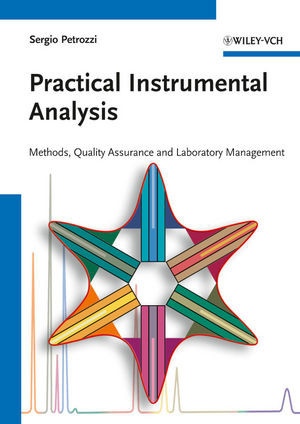

Most ebook files are in PDF format, so you can easily read them using various software such as Foxit Reader or directly on the Google Chrome browser.
Some ebook files are released by publishers in other formats such as .awz, .mobi, .epub, .fb2, etc. You may need to install specific software to read these formats on mobile/PC, such as Calibre.
Please read the tutorial at this link: https://ebookbell.com/faq
We offer FREE conversion to the popular formats you request; however, this may take some time. Therefore, right after payment, please email us, and we will try to provide the service as quickly as possible.
For some exceptional file formats or broken links (if any), please refrain from opening any disputes. Instead, email us first, and we will try to assist within a maximum of 6 hours.
EbookBell Team

0.0
0 reviewsThis practical book in instrumental analytics conveys an overview of important methods of analysis and enables the reader to realistically learn the (principally technology-independent) working techniques the analytical chemist uses to develop methods and conduct validation.
What is to be conveyed to the student is the fact that analysts in their capacity as problem-solvers perform services for certain groups of customers, i.e., the solution to the problem should in any case be processed in such a way as to be "fit for purpose".
The book presents sixteen experiments in analytical chemistry laboratory courses. They consist of the classical curriculum used at universities and universities of applied sciences with chromatographic procedures, atom spectrometric methods, sensors and special methods (e.g. field flow fractionation , flow injection analysis and N-determination according to Kjeldahl).
The carefully chosen combination of theoretical description of the methods of analysis and the detailed instructions given are what characterizes this book. The instructions to the experiments are so detailed that the measurements can, for the most part, be taken without the help of additional literature.
The book is complemented with tips for effective literature and database research on the topics of organisation and the practical workflow of experiments in analytical laboratory, on the topic of the use of laboratory logs as well as on writing technical reports and grading them (Evaluation Guidelines for Laboratory Experiments).
A small introduction to Quality Management, a brief glance at the history of analytical chemistry as well as a detailed appendix on the topic of safety in analytical laboratories and a short introduction to the new system of grading and marking chemicals using the "Globally Harmonized System of Classification and Labelling of Chemicals (GHS)", round off this book.
This book is therefore an indispensable workbook for students, internship assistants and lecturers (in the area of chemistry, biotechnology, food technology and environmental technology) in the basic training programme of analytics at universities and universities of applied sciences.